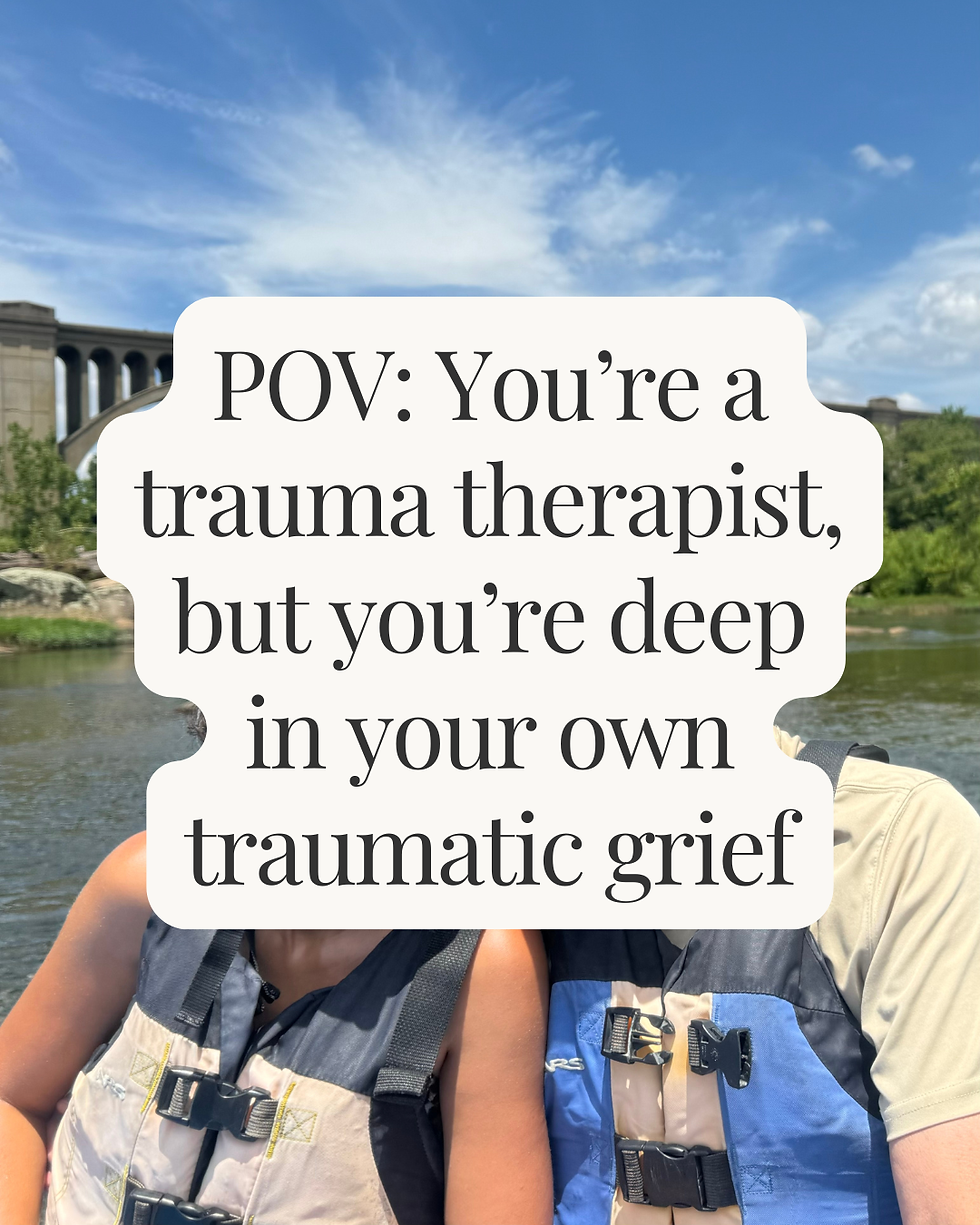Sobriety is Seasonal
- Adrienne Loker

- Jul 25, 2023
- 3 min read
Updated: Apr 1, 2025
By Adrienne Loker, LCSW

There are so many supports that exist for people in early recovery from substances. But what happens when these resources become maximized? When those who are recovering no longer feel fed by the things that used to nourish them? When there are complexities that aren't addressed within the traditional framework of recovery? Often, folx are led to believe that this is their "disease talking," when it's actually their recovery talking!
People grow up in recovery, much the same way a baby grows into an adult. We first enter recovery as helpless infants, reliant on the rigid structure of our parents (sponsors and elders) to tell us what to do and where to go. While young children are still developing their "good thinking" brain, in early recovery, our good thinking brain is still being repaired. This makes simplicity our friend - manifesting in slogans and logic that help us to Keep It Simple.
As our brain recovers, our capacity for complexity greatly deepens. Much like a toddler asking "why?", we want to know "why" too. Why do I keep feeling this way? Why can't I let this thing go? Why am I getting angry if I'm so spiritually fit?
Because there are not many resources that focus specifically on the needs of folx who are in later seasons of sobriety, we tend to offer the same solutions again and again, with lesser benefit. Sometimes, this can lead to shame: "What's wrong with me that this doesn't seem to be working?"
The good news is that this is developmentally normal in recovery. It's not an indicator of regression, but rather one of progression. So what are the next steps? Okay, I can't answer all that in one blog post, but, I can point you in some helpful directions.
First off, you're not alone. You can find the people in your network that you can speak to more freely about this individuation process - where we begin to form an identity that is influenced by our community, but is autonomous. Finding the people you can be yourself around is such a critical component to seasoned sobriety.
Secondly, approach your questions or concerns with curiosity, not with judgment. The judgment comes from a part of you who is trying to protect you from pain and relapse. Let yourself get curious about this part of you too. Let yourself treat all thoughts, feelings, and physical sensations as a part of you who is just trying to keep you safe. Ignoring these parts only makes them louder, so take some time to really listen and not override them.
Thirdly, take the time to learn more about your nervous system. We stay trapped in maladaptive behavior because it's attached to a survival memory - our brainstem thinks that if we let go of whatever it is we're doing (gossiping, being critical, perfectionism, binging, etc) that something bad will happen. Once our nervous system is oriented to a sense of safety, it begins to step out of these maladaptive patterns.
Learn more about the nervous system on our website under the "Our Skills" dropdown menu, or join us for our next Bodywise Recovery group where we put these skills into practice. More info on group can be found at https://www.seekingdepthtorecovery.com/group-therapy-richmond-va
Most importantly, be kind to yourself!
.png)



Comments